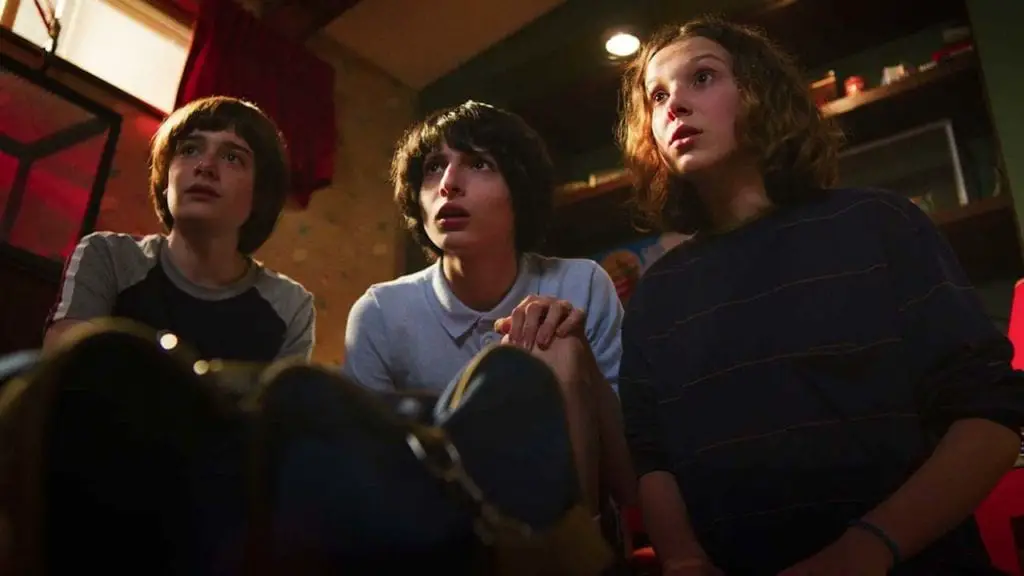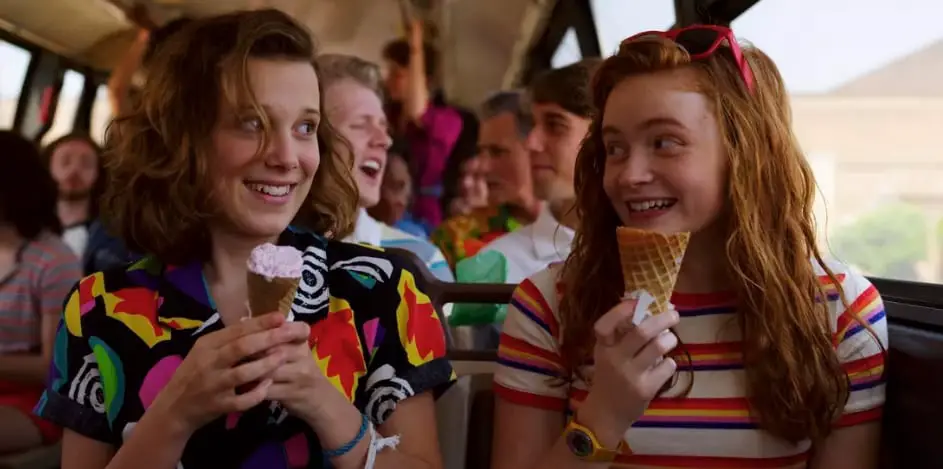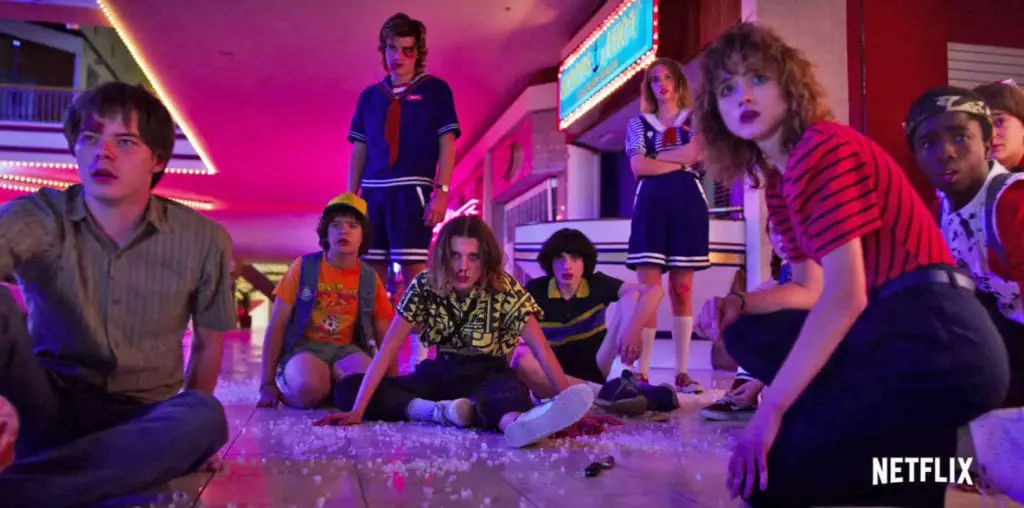“Surprise!”, TV yells at me yet again.
“Stop it!”, I say. “Surprise me with how good you are and how much you make me feel, not with shocks and twists”. All the while I wonder… How did we get here?
If there is a trend-setter on Television today, I would have to concede that to Game of Thrones. It is one of the few widespread cultural phenomena that are so rare nowadays. Apart from the scale of it, one of the show’s biggest selling points was that pesky “subversion of expectations.” They subverted expectations so much that they betrayed character arcs in order to shock and surprise—ultimately to no good result, even with mainstream audiences.
Since it began, other shows have followed suit, focusing on the shock effect sometimes to the detriment of meaningful storytelling. I can only guess will grow stronger as the battle for subscribers only gets more and more vicious.
Westworld creators famously rewrote parts of the show and begged fans to stop trying to guess the twists. This, particularly, is hilarious to me. Fandom culture, if you take the time to observe or even participate, is about fixation and involvement. Asking fans to not theorize about the future of a story sounds to be akin to asking them to please stop being fans.
The trend is particularly strong in drama. It is a big part of the reason why I’ve watched fewer and fewer live-action dramas in the last couple of years, gravitating instead towards comedy formats (like GLOW and Fleabag) which seem to feel less obligated to follow in those footsteps. I’m also going through a big animation phase. These shows make me feel uplifted and excited, as opposed to off-balance and gloomy. Which is the perfect segway into the television season that left a surprisingly good taste in my mouth this year: Stranger Things.
Them Crazy Kids

It took me a while to board the hype train of Stranger Things. My friends even coerced me to jump in. I trudged through the first season and shrugged when it ended. I’d describe my feelings as tepid, at most. “Not terrible, but also not great”. If I’m being honest with myself, I was predisposed to think of it as unoriginal. Mental programming is a tough nut to crack. It didn’t float my boat at first.
Enter season two, which I was surprised at how fast I binged. Not because of amazing narrative cohesion and being thrillingly surprised at the twists, no. It was them crazy kids, crawling in between my heartstrings. Steve really snuck up on me. Listen, people have talked about this already since season three came out. But Stranger Things helped me remember why character is the heart of the story.
Let Us Close The Upside Down… Again
Still fresh off the end of Game of Thrones, I jumped into Stranger Things’ third feeling like the world had been explored perhaps enough.
Sure enough, Stranger Things does repeat itself: The Upside Down is open (again) and our heroes must fight against powerful human forces as well as otherworldly powers to close it (again). It is repetitive, and to be honest, it was their last free pass for repeating the same plot.
Of course, the kids are older now and with that comes different storylines for them, more focused on that awkward transition between kid and teen. Tween drama ensues. This time, characters are grouped off into four factions that, through different means and of their own accord, figure out what is going on. They (of course) come together in the end.
As the plot starts unfolding in the first few episodes, it is obvious where it is going. The team-ups were crystal clear, and for the most part, stay separate until the last couple of episodes. The characters doomed to bite the dust can be spotted a mile, nay, two miles away.
And yet. And yet.
I cheered. I rose up off my seat. And I grinned like an idiot at all the silly jokes and the last-minute saves. My rational mind kept thinking “I should be rolling my eyes at this!”. Why wasn’t I? Here’s a list of reasons why:
- The extremely loveable characters are the narrative’s priority over anything else.
- That’s it. That’s the list.
Of course, that’s not enough for any story to work. The plot is well enough constructed not to feel too forced, especially considering the over the top tone the show has been building over two seasons. The care put into internal logic, as well as comedy, is clear to see. Execution is not perfect, as critics of the season made sure to point out. There is room for improvement, yes, but I would argue it works as is.
The most important reason why is, again, the characters. Most of them have a clear arc. They are consistent in their personalities, desires, and evolution across the seasons. It feels like a breath of fresh air.
Eleven’s friendship with Max is something that felt natural and necessary. Nancy’s foray into the working world was significant in more ways than one. Steve’s arc remains one of the best in the series, and Robin was immediately endearing and ended up being a highlight of the season.

Stranger Things is not perfect. That’s not what I’m saying. I certainly think Nancy and Will’s arcs fell short this season. Eleven and Hopper needed more screen time together, given the resolution. Hopper had moments where he was almost too unlikeable for me. Beyond that, Stranger Things still isn’t the most original show or the freshest content out there. But is that really as important as all that?
This season proved that, at least to me, maybe it’s not.
The Duffer brothers clearly don’t care whether we can guess what’s coming. They care about their characters and about our viewing experience a whole lot, though. You can just tell they want us all to have a good time—and sometimes a good cry. I ended it wanting more, feeling little-kid-type elated. In a TV moment where characters pull 180s last minute or twist into pretzels to fit plot necessities, often in order to be shocking, it was just a relief.
Whatever Will Happen Next?
Frankly, it is ludicrous for showrunners to ask fans to stop guessing. Most people with access watch way, way too much TV. And that is just mainstream audiences. The more they watch, the better they’ll get at guessing. Even if they’re not trying!
With Stranger Things, you don’t even have to be an avid TV fan to guess who’ll close the gate, who’ll die, who’ll get a redemption arc. Still, I would wager that the season does manage at least a couple of surprises. The difference is the (admittedly small) twists pander to character, not the effect of shock.
Contrary to what the Westworld or Game of Thrones showrunners may believe, knowing what will happen doesn’t necessarily ruin the viewing experience. Having your audience guess what’s coming can, in fact, be a testament of good writing.
Twists are meant to feel surprising, yet inevitable. Inevitable is crucial. Pulling the rug from under audience’s feet is the easiest thing to achieve (like, say, having Arya jump out of nowhere to kill the Night King). It is not so easy to make the audience go “I should have seen that coming.” More to the point, I don’t believe every show ever should have complicated shaded foreshadowing and twists galore. Sometimes you just want to sit down and watch the classical Hero’s Journey, complete with its happy ending.
Most of the surprises and last minute saves on Stranger Things, I saw coming. Yet because everything that happened was consistent, especially with character, I was invested. There was no Barb jumping out of nowhere to close the gate last minute. Nor should she have.

On another point, speaking as a fan, one constructs exhaustive and intricate theories out of love. It is so satisfying when they turn out to be correct! Why writers would feel so adamant about denying fans the satisfaction, I don’t understand. There are already plenty of theories about Stranger Things season four popping up online. I’m hoping the Duffer brothers won’t change anything if people have guessed right. Somehow I doubt they would.
I’m thankful for Stranger Things this year. It reminded that good storytelling is not about the shocks and gasps. You can do the last-minute save ten times in eight episodes. If the scenes are well-constructed and I’m invested in the character, I’ll still care.
I tuned into the show this year because I wanted to see how El would adapt to a normal life. I wanted to see Max again and more. See Steve interact with Dustin. Stranger Things delivered what I wanted and more. It wasn’t groundbreaking, or mind-bending. Just. Plain. Enjoyable.
In that sense, out with the surprising, twisty and shocking. Don’t give me subverted expectations. Just bring back predictable!

